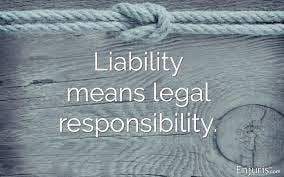Law enforcement officers face many challenges daily, from upholding the law to ensuring public safety. Amidst these duties, mental health often takes a backseat, overshadowed by the job's demands. However, it's high time for law enforcement officers and their leaders to stop tip-toeing around the issue of mental health and recognize its pivotal importance. Let's all face the truth: policing, in general, has become this soft-touch approach. If someone were to research the effects of this alone, they would uncover the hardship this causes cops! So, walking on eggshells about taking our mental health seriously will not be the answer. This can start at the patrol level but has to be supported and accepted by the administration.
The Old Standard is Out
Traditionally, the culture within law enforcement has perpetuated a stigma surrounding mental health discussions. This standard was more than welcomed by leaders. It is no secret that Officers suffering and needing treatment often require time off. This requires excellent leadership to facilitate that, but instead, officers are expected to display resilience and strength, often at the expense of their well-being. This ingrained mindset has contributed to a reluctance to acknowledge and address mental health challenges, leading to a concerning prevalence of stress, anxiety, depression, and even post-traumatic stress disorder (PTSD) among law enforcement personnel.
Liability
Ignoring mental health in law enforcement is a disservice not only to the officers but also to the communities they serve. If an officer is not mentally ready to take a call, they could be a liability to themselves, the community they serve, and the department. Now, there is a word leadership is scared of, "Liability." The impact of unaddressed mental health issues can manifest in various ways, including decreased job performance, strained relationships, and a higher risk of burnout or even suicide among officers. Furthermore, untreated mental health conditions can impair decision-making abilities, potentially jeopardizing public safety. Leaders within law enforcement agencies play a pivotal role in setting the tone and cultivating a culture that prioritizes mental health. They must foster an environment where officers feel safe and supported in discussing their mental health challenges without fear of stigma or repercussions. This involves implementing mental health programs that provide access to counseling, therapy, and resources tailored to the unique stressors law enforcement professionals face at the agency's cost.
Training
Training programs should also incorporate mental health awareness, teaching officers to recognize signs of distress in themselves and their colleagues. Encouraging open dialogue about mental health and providing avenues for seeking help should be normalized within law enforcement agencies, erasing the perception that acknowledging mental health concerns is a sign of weakness. This will help build a culture that seeking treatment is normal and will keep you working the street where you are most needed. Moreover, policies need to be in place that destigmatize seeking mental health support and ensure confidentiality for those seeking assistance. Offering peer support groups, confidential hotlines, and anonymous counseling services can create a safety net for officers navigating mental health challenges.
Leaderships’ Role
Acknowledging the significance of mental health within law enforcement is not a sign of vulnerability but a testament to strength and resilience. Addressing mental health proactively enhances the overall well-being of officers, fortifies their ability to serve their communities effectively, and reduces the risk of long-term psychological harm. This may be the biggest obstacle for law enforcement. No one wants to look weak. No one wants to feel weak, and no one wants to leave their shift short-handed, especially over something mental. This is where great leadership is needed. They must make the best decisions for the officer when they cannot do what is best for them and their shift. Now, that is what outstanding leadership looks like. Physical wounds are easy to explain as well. How does someone explain a mental injury? It's impossible in today's culture.
In Conclusion
In conclusion, law enforcement officers and leaders must shatter the silence surrounding mental health. Embracing a culture prioritizing mental well-being supports the officers and fortifies the foundations of a safer and healthier community. It's time to stop walking on eggshells and start fostering an environment where mental health is recognized, supported, and prioritized within law enforcement agencies. Let's actively contribute to ensuring our peacemakers are mentally prepared to confront challenges bravely.






